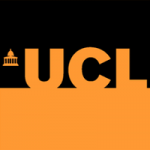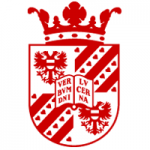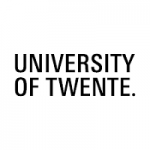项目介绍
Overview
The Department of Culture, Communication and Media has innovative, research-active staff able to supervise postgraduate research in the following areas: applied linguistics; TESOL; art, design and museology; music education; English education, social semiotics and multimodality; media education; learning with digital technologies; teacher professional development; and psychosocial studies. We have four research centres: The Centre for Applied Linguistics, the Confucius Institute for Schools, Digital Arts Research in Education, and the UCL Knowledge Lab.
Research areas
- Applied linguistics: bilingualism and multilingualism; neoliberal ideology and language teaching; materials analysis; English as a global language; language learning and identity; language teacher identity; language education, gender and sexuality; critical discourse analysis; second language acquisition; language testing; translanguaging; ethnography
- Art, design and museology: artists in sites of learning, curatorial practices and the shaping of knowledge in galleries and museums, artists interventions in educational contexts; visual culture
- Music education: musical development, the psychology of music, singing and voice science, music in special education, music ideology, gender and music, the sociology and philosophy of music, informal and popular music education, the wider benefits of music
- English education, social semiotics and multimodality: teacher identities; literature in urban classroom; social and digital literacy practices; identity, subject knowledge and communication; visual methodologies; subject knowledge and policy
- Media education: the moving image and video games; young people’s production of digital animation, film and computer games; online communities, virtual worlds, play and film
- Learning with digital technologies: software interventions to support learners with disabilities; the development of adaptive technologies; learner modelling; virtual learning environments; methods for analysing the effectiveness of interactive learning environments; technology mediated knowledge in the curriculum
- Psychosocial studies: reflexivity; psychoanalytically informed approaches to educational research; knowledge practices in the humanities and social sciences; unconscious aspects of learning, professional practice and research; post-structural theories of gender and subjectivity
Further details of staff research and publications are available on the department website.More information can be found on the department website: Culture, Communication and Media MPhil/PhD
About this degree
In addition to UCL’s Doctoral Skills Development Programme, the IOE’s Centre for Doctoral Education provides a comprehensive Research Training Programme.
Full-time MPhil/PhD students are required to fulfil 20 ‘points’ of training activity in their first year, and are encouraged to fulfil the same in their subsequent years of study. This training can be selected from the UCL Doctoral Skills Development Programme, the IOE faculty’s Research Training Programme, the multi-institutional Bloomsbury Postgraduate Skills Network, and from other sources. Each point is worth approximately a half-day of face-to-face training, or an online equivalent. Part-time students fulfil 12 units of training activity a year. Other activities such as attending and presenting at conferences also count towards research training. Students may undertake additional training beyond these minima, as relevant to their research and/or as agreed with their supervisors.
The Core Course aims to meets the needs of early stage doctoral students.
There is also a wide range of introductory, advanced methods, advanced theoretical, and generic academic skills courses, as well as student-led workshops and reading groups.
Please note that the list of modules given here is indicative. This information is published a long time in advance of enrolment and module content and availability is subject to change.
Additional costs
For more information on additional costs for prospective students please go to our estimated cost of essential expenditure at Accommodation and living costs.
Accessibility
Details of the accessibility of UCL buildings can be obtained from AccessAble accessable.co.uk. Further information can also be obtained from the UCL Student Support & Wellbeing team.
Funding
Scholarships relevant to this department are displayed below.
IOE Centenary Doctoral Scholarships
Value:Full tuition fees and accommodation (Up to 4 years)Eligibility:OverseasCriteria:Based on both academic merit and financial need
For a comprehensive list of the funding opportunities available at UCL, including funding relevant to your nationality, please visit the Scholarships and Funding website.
Careers
IOE doctoral graduates in the Department of Culture, Communication and Media progress to careers in university teaching, educational research, policy and curriculum development, as well as creative arts education.
Employability
Students will develop general and specialist skills in research methodology, academic writing and presentation, as well as gaining experience of engaging with a wide range of practitioners across different sectors of education.
Networking
The Department of Culture, Communication and Media has a wide range of research seminars, where students can join discussion of our ongoing projects, as well as being the base for national and international conferences. There are also opportunities to work with education practitioners and organisations beyond the IOE. The Centre for Doctoral Education holds two annual conferences for IOE doctoral students; and there are opportunities for students to offer specialist reading groups and workshops and to act as facilitators on courses within the research training programme.
Why study this degree at UCL?
The UCL Institute of Education (IOE) is a world-leading centre for research in education and related social science. We host the UK’s largest doctoral cohort in these areas. In the QS World University Rankings by Subject (2021), the institute was ranked first for education for the eighth year running, ahead of Harvard, Stanford, Oxford and Cambridge. In the UK’s most recent Research Excellence Framework (2014), we were number one for education research strength, with more world-leading researchers in education than any other UK University. A quarter of UK education research is carried out at the IOE and we are home to many prestigious research centres and projects.
Doctoral students at the IOE have access to the wider UCL community as well as the education cluster constituting the ESRC UBEL Doctoral Training Partnership. The Institute’s programme has been designed to provide comprehensive and broadly based research training and to meet the requirements of the Economic and Social Research Council (ESRC), the Arts and Humanities Research Council (AHRC) and the UK Researcher Development Framework.
Students work closely with their supervisor(s) to develop each stage of research; supervisors also help put together a programme of additional courses and activities to support progress towards completion of the final thesis.
Department: Culture, Communication & Media
Application and next steps
Applications
Students are advised to apply as early as possible due to competition for places. Those applying for scholarship funding (particularly overseas applicants) should take note of application deadlines.
This programme requires two references. Further information regarding references can be found in our How to apply section.
Application deadlines
All applicants30 July 2021
Applications are accepted throughout the year.
For more information see our Applications page.Apply now
录取要求
-
The normal minimum requirement is a Master’s degree from a UK university in a subject appropriate to the programme to be followed, or a qualification of equivalent standard appropriate to the programme to be followed awarded by a university (or educational institution of university rank) outside the UK. The majority of our successful applicants hold a Merit at Master’s level, and may have additional relevant experience. Students without a Master’s degree who have completed the UCL PGDip in Social Science Research Methods, obtaining a grade B or above in any two or more modules, may also be considered for admission to this programme.
联系方式
电话: +44 (0) 20 7679 2000相关项目推荐
KD博士实时收录全球顶尖院校的博士项目,总有一个项目等着你!






